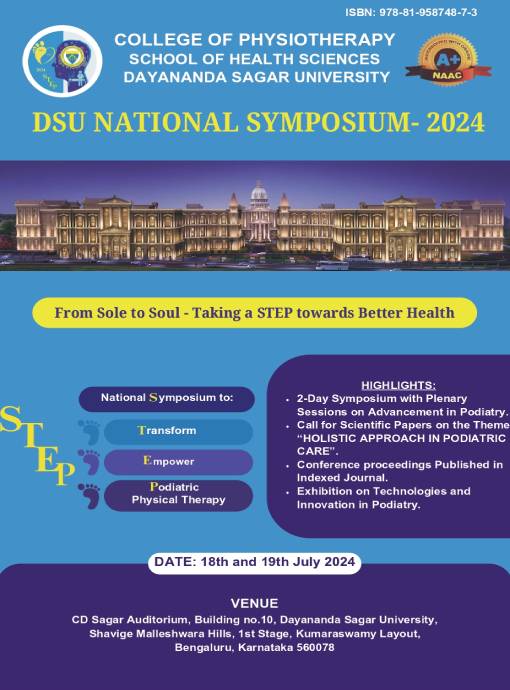Effectiveness of Neurobic Exercise Program on Mild – Moderate Psychological Distress in Community-Dwelling Old-Aged Adults
DOI:
https://doi.org/10.18311/DSUPHY/9788195874873/2024/041Keywords:
Psychological Distress; Old-aged Adults; Neurobic Exercises; Community Dwelling; Non- Randomised; Single Group; experimental StudyAbstract
Background: Psychological distress is widely used as an indicator of mental health. Distress comprises a variety of symptoms such as depression, anxiety, stress, and insomnia. Psychological distress in the elderly remains an under-researched area in India. The overall prevalence of psychological distress among persons aged 60 and over living in the seven Indian States is 40.6%. Recent studies have shown that neurobic exercises are effective in elevating BDNF and neurotrophin levels. Thereby improving memory/cognition functions and reducing symptoms like depression.
Aims of the Study: The study aimed to assess the effectiveness of neurobic exercise in reducing psychological distress in community-dwelling old, aged adults.
Methods: A non-randomized, single-group experimental pilot study was conducted. A convenient sampling technique was used in the selection of the participants. 55 participants, aged above 60 were selected according to the inclusion and exclusion criteria. Selected participants further underwent a screening process using the screening tools according to the inclusion criteria. The participants were explained about their role in the study and written consent was taken from the patient. participants with mild-moderate psychological distress undergo pre-tests with the Kessler Psychological Distress Scale (K10) Following which, the participants undergo a neurobic exercise program – once in two days for 4 weeks. After completion of the intervention, the same outcome measure tool is used to assess and measure and compare the psychological distress post-intervention.
Results: The pre and post-test results were compared, which showed significant differences. The cut-off scores of the Kessler Psychological Distress Scale (K10) post-4 weeks of intervention were lower than the pre-intervention scores. Thus there was a significant improvement in the K10 score after 4weeks of intervention.
Conclusion: Thus the study concludes that neurobic exercises are effective in reducing psychological distress in community-dwelling old adults Implications-According to this study and relevant literature reviews neurobic exercises can be implicated clinically by physiotherapists to improve symptoms of psychological distress, and insomnia, to improve cognition and memory. It makes the brain more agile and flexible overall so it can take on any mental challenge, whether it be memory, task performance, or creativity. That’s because neurobiology uses an approach based on how the brain works and neuroplasticity.
Downloads
Published
How to Cite
Issue
Section
 Pragnya Jahnavi
Pragnya Jahnavi




